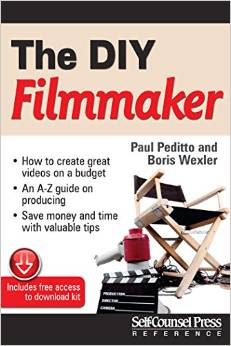
We all remember what happened with Louis CK–back in the pre-COVID world. With the shit-show of 2020, the shit-show of Louis CK just kinda… dropped from the collective mind.
Did you know he had a web series?
It was $31 bucks when it came out. Now it’s just $13. Gets you all the Horace and Pete episodes. He likely still has thousands of people paying up(ok, hundreds?)…because of his name alone.
So what’s this have to do with you?
If you’ve been considering making a web series, this one’s for you.
Get proactive. While you’re waiting for the world to discover you, maybe you should consider making a web series and meet the world halfway. You won’t retire with money from this, but you just might open the door of opportunity, and that will pay.
I created two 8-week courses on web series for Second City. Writing The Web Series and one the Producing side. I’ll be adding to that content here soon, so keep an eye out.
Meanwhile…back to Louis CK via IMDB….
“In his continuing bid to do whatever he wants whenever he wants, Louis C.K. went ahead and released a web series out of thin air. Horace and Pete is the story of 2 middle-aged guys (CK and Steve Buscemi) who run a bar together. Sounds cute, right? Like Cheers? Not so much. While the show is funny and snappy it’s also extremely dark, delving deep into the fear and misery which are the lifeblood of C.K.’s universes. Only the first two hour-long episodes have been released but they are so nuanced, so complex, that I’ve already gone back twice to re-watch them. The show is as good as shows get. It’s one of the best web series ever made. And it teaches us absolutely nothing useful about independent projects.
Successful entertainers live in a separate universe. It isn’t necessarily better than ours, but the rules are different. I’m not only speaking of the law, here, I’m talking about the rules that actually govern our society; the social contract as it relates to personal space, privacy and physical contact is applied entirely differently to famous people…
One of the things distribution companies handle is promotion: they not only get people to watch your show, they’re the ones who tell everybody about it in the first place. The other thing they do is find places to actually host the show. If you’re rich and famous and you have a website, if your show is brimming with well known Hollywood talent…well, all that work has already been done for you, so by all means cut out the middleman.
People wrapped up in the dream of making their name from a series going viral will point to this as an example of a show succeeding without the aid of the clunky, imbalanced hosting platforms we’re all trying to figure out, but those people are delusional. You don’t have Louis’ reach, his money or his friends or you wouldn’t be grasping at these straws. Lots of people have tried this distribution model. It has yet to work for a regular person.”
As you move to write this web series and potentially make it, it’s vital to understand the realities of the business and to keep your expectations in line. Without a major name to promote your series you’ll be in the pack of no-name actor led projects. If it’s good enough, your series will rise above the pack, but you just need to understand how crowded the field is. It’s not often you can come out of gate with your first series and demand subscription payment without generating massive web traffic to justify it.“
My good friend Julian Grant from Columbia College always speaks about “building your brand”. This web series might be the first building block for establish you as a professional writer. To that end, I would instruct you to check out the WGA Web Series Online Meetup. It’s a fantastic discussion with multiple professional writers who took their first steps with web series.
Also check out this panel discussion about Web Series from the WGA. It’s 4 years old but has web series makers on the process and result. A must-see…
The takeaway for me is how web series is a doorway to getting staffed in writer’s room. It’s a calling card that a potential showrunner can check out before meeting with you.
SNOBBY ROBOT ON THE BUSINESS OF WEB SERIES
I’ve read some great writing from Snobby Robot of the business side of web series writing. I’ll give you the links and a few samples here.
This article describes the changing paradigm of how people view content, how old barriers are falling. Here’s a piece:
“There is a video on youtube somewhere of some old guy talking about producers trying to make radio programming work on television but struggling. Apparently broadcasters needed to come to terms with the uniqueness of the new television medium – you know, leave behind the old ways of creating media and maybe make this new tv thing into something really powerful.
It is near impossible to not view new forms of media through the lens of the old, something we all do when we describe internet based shows as ‘web TV.’ We call shows that because that is what we are all used to, and that is what they are similar to. Sure most online productions shorten their videos up, and lack a lot of the production values associated with traditional television but in just about every other aspect internet shows are just that – web TV.”
Another great article is this one from Joe Thomas (Johnny Dynamo about building your web series from scratch. Here’s a piece:
“So you’ve come up with a great idea for a web series, now what? Sure, it all starts with the concept, then moves right into scripting, budgeting, casting, production; you probably already know the routine, but getting your series on film or data card is really only the beginning. Think about it, the most incredibly produced, artfully written and Emmy worthy performances are all going to go poof if nobody sees it. The most daunting and difficult phase of creating a successful web series is building an audience.
Building that audience MUST start with a fully workable plan. It’s not as simple as throwing it up on YouTube and catching a few thousand Twitter followers and Facebook likes. No. It’s not simple at all. And I hate to be the bearer of bad news, but the odds are stacked against you from the beginning, and they’re getting worse every day. Look at the trade sites, how many real Hollywood players are migrating to the web series platform? How many major networks and web sites are jumping into the web series arena with their own original web content? Every day the numbers go up, and with those numbers come dollars – real dollars. The major players will win simply because they can outspend you. Even Kickstarter is seeing a major swing in the A-Listers that are turning toward crowdfunding. How in the world can the ‘little guys’ compete with that?“
I don’t profess to have all the answers, and I can assure you the odds are not in your favor, but I can tell you what has worked for our project, Johnny Dynamo, and I hope you can gain at least some insight on building your audience.
“A good web series may never succeed, but a bad series is sure to fail.
Before you jump in, remember that good and bad are merely someone’s opinion. We all love our own creations, but that doesn’t make it good. Get some outside, unbiased opinions before you take the leap into ‘the black hole’. If half the people love it and half hate it – then retool – get to 80/20 before you even think about going into production. And before you go into production, KNOW and UNDERSTAND your target audience.
Budget, Finance, and Have More Money Than You Think You Need
There’s no standard. No standard number of episodes in a season; no standard length for an episode; and certainly no standard amount of money needed to produce a successful web series. But before you start production, think about these things and have a plan. Know going in how long your episodes are going to be, and how many episodes are going to complete your season. Then, above all else, make sure you have the budget to deliver. This is going to be extremely important as you build your audience – your audience is going to expect you to deliver – or you won’t have that audience very long.”
OK, got it. Understand even before you write– what is the audience for my web series? What will be the cost of what you’re writing? What can you reasonably raise for financing?
One last great piece of advice from a Rebecca’s Norris’ interview. A sample:
“Those of you who follow my column know that I love writers, directors, and actors who take their careers into their own hands and create their own work. I was excited to come across two such individuals recently: writer/director/producer Evan Muehlbauer and writer/producer/actor Lyman Johnson (Links to an external site.) of the new web series Brian Remus: Science Genius (Links to an external site.).
Rebecca: What advice do you have for aspiring web series writers and creators? What lessons did you learn from your experience that you’d like to pass on?
EM and LJ: First, make sure that everything that needs to happen is something you either can do yourself or can pay for. Don’t count on favors from anybody. If you think it’s hard to find someone who will help you move a couch, try asking for ten hours of unsupervised, highly skilled work! It’s not that your friends won’t do it, it’s that they will (and should) prioritize their own professional development and ability to pay for rent and food. Your stuff has to take a backseat to their work, so you might be waiting a long time for that favor to come through.
Also, listen for criticism that doesn’t sound like criticism. You might get questions like “why did the character do this in this scene,” or “are you going to have an episode where we get to see such-and-such?” Don’t just answer it reflexively. Listen to the question behind the question, and realize that they are telling you something isn’t tracking in the current draft.”
On the subject of writing web series characters. A piece here:
“Devine Intervention nailed this. Their main character was flawed, struggling and it took some real ‘Divine Intervention’ to get her back on the right path. The show’s plot served to grow the character – to propel her past her most detrimental shortcomings. ‘If it’s not on the page it’s not on the stage.’ There needs to be a reason people watch your show, and there needs to be a big reason people overlook your mistakes. That reason is almost always character. If you do not write interesting characters who grow and change throughout the series people wont watch, even if your production is flawless.”
One last taste from Snobby Robot, a great interview with about writing for web series. A sample:
“The concept of developing it as a web series came during pre-production. I started delving into some of the great web series of the time – The Guild, Riese, All’s Faire and of course Dr. Horrible, which was more of a web mini-series, but still illustrated the viability of independently-produced, independently-distributed content. I truly believe that we are on the cusp of a new entertainment renaissance thanks to a combination of free online distribution platforms and affordably-priced consumer electronics. The playing field is leveling out, and you don’t need to have a ton of money to get your project made or a ton of industry connections to get it seen. When the new landscape finally settles, entertainment is going to be about three things: creativity, talent and dedication. Web series are the heralds of this renaissance, and I’m incredibly excited for the opportunity to be here right at the beginning of it…”


